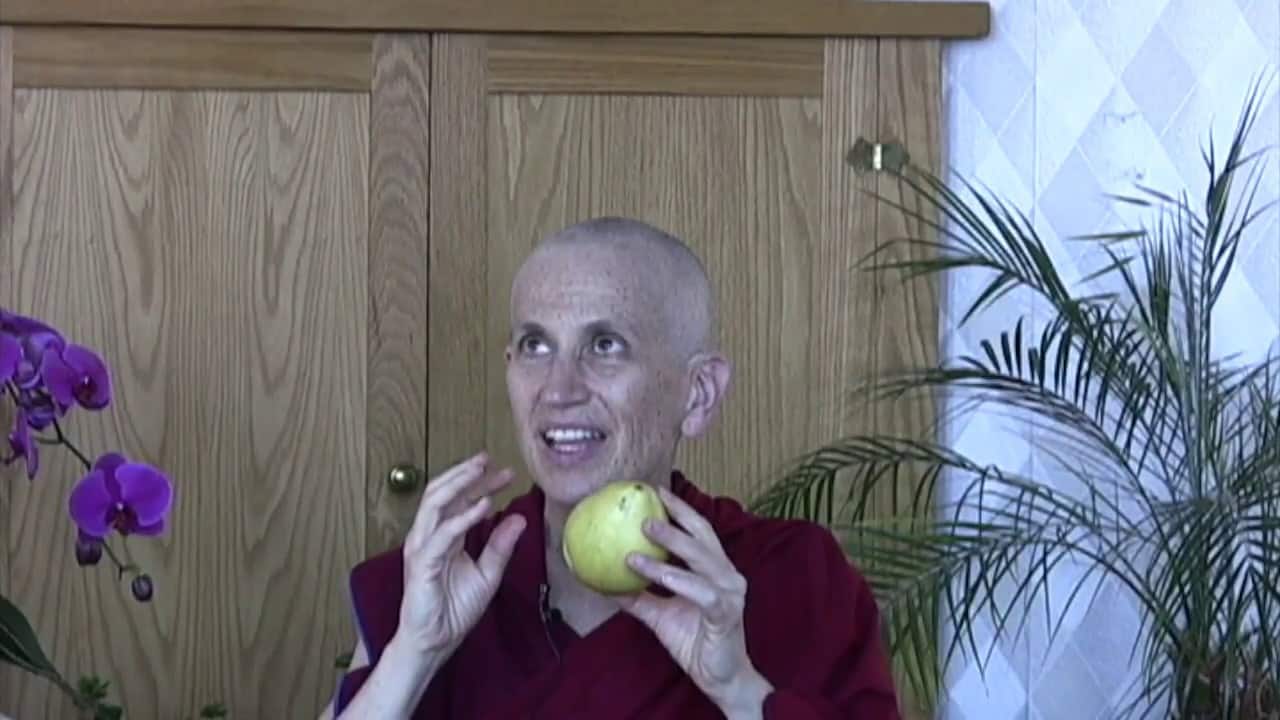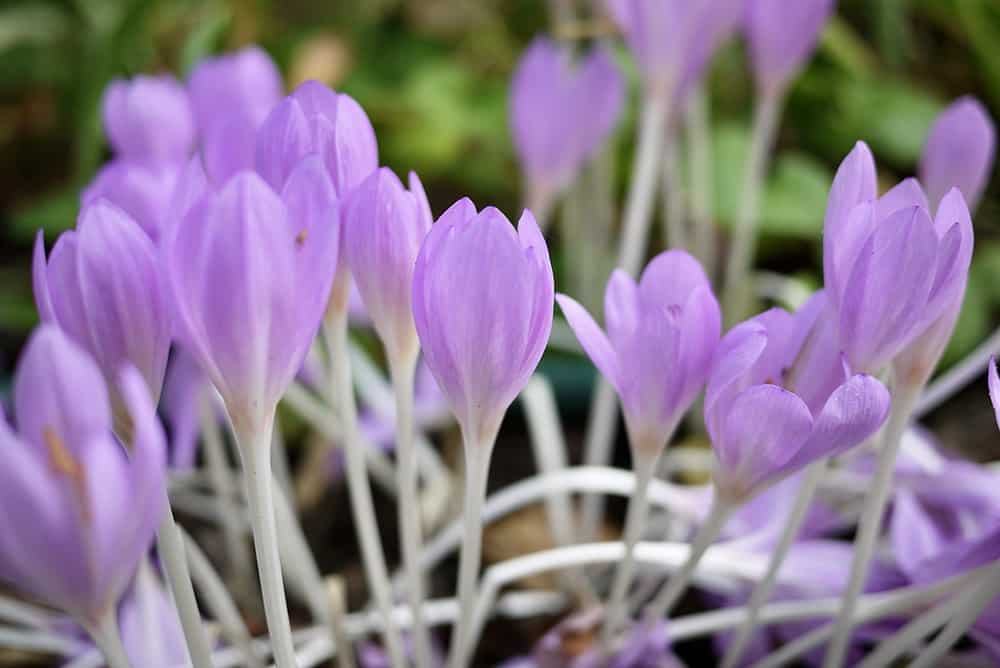Verse 4: The sleep of ignorance
Part of a series of talks on the 41 Prayers to Cultivate Bodhicitta from the Avatamsaka Sutra (the Flower Ornament Sutra).
- What it means to awaken from the sleep of ignorance
- Ignorance: grasping at true existence
- View of the perishing aggregates
- Importance of practice (not just prayer)
41 Prayers to cultivate bodhicitta: Verse 4 (download)
Hopefully last night when you went to sleep you thought, “May all sentient realize the empty nature of all phenomena, and this is a practice of a bodhisattva.” And then when you were sleeping, this is a little bit harder, to realize the dream-like nature of things. But like I said yesterday, to try and see that just around us in our interactions, what’s going on in our daily life, because that way we don’t take things quite to seriously, we’re a little bit lighter with them.
Today it says,
“May all sentient beings awake from the sleep of ignorance.”
This is the prayer of the bodhisattva when waking up.
“Awaking from the sleep of ignorance.” This is an analogy that you find a lot in the scriptures because usually when we’re sleeping we’re just out, aren’t we? The mind’s really overwhelmed by ignorance, we can’t think clearly or anything at that time. That’s why there are these practices of trying to fall asleep with an understanding of emptiness, trying to be aware when you’re dreaming and think about the illusory nature of phenomena.
But when we wake up, think “Oh, I’m coming out of ignorance.” And not just me, but may all beings come awake from the sleep of ignorance.
The “sleep of ignorance” is referring specifically to the grasping at true existence. And within that the grasping at the true existence of our own self, what’s called the view of the perishing aggregates. Because, amongst all the ignorances, that’s the one that gives us the most problems is thinking that there’s a real me sitting here. So really may we come out of the ignorance that grasps at a truly existent “I.” Because whenever we’re grasping at that big me that’s there that really exists, and that needs all these things, and that doesn’t like all these other things, then we so easily get into conflict with our environment and with the beings around it.
Here we’re really praying that ourselves and all sentient beings wake from the sleep of ignorance.
But prayer is not enough. We have to practice. Hear teachings about emptiness. Think about them. Meditate on them. Just praying [folded hands], “May I and all sentient beings, please Buddha, become a buddha.” That’s not going to get us any closer. We have to act and purify our minds, accumulate merit, listen to teachings, and contemplate the teachings. And put them into practice.
Venerable Thubten Chodron
Venerable Chodron emphasizes the practical application of Buddha’s teachings in our daily lives and is especially skilled at explaining them in ways easily understood and practiced by Westerners. She is well known for her warm, humorous, and lucid teachings. She was ordained as a Buddhist nun in 1977 by Kyabje Ling Rinpoche in Dharamsala, India, and in 1986 she received bhikshuni (full) ordination in Taiwan. Read her full bio.


